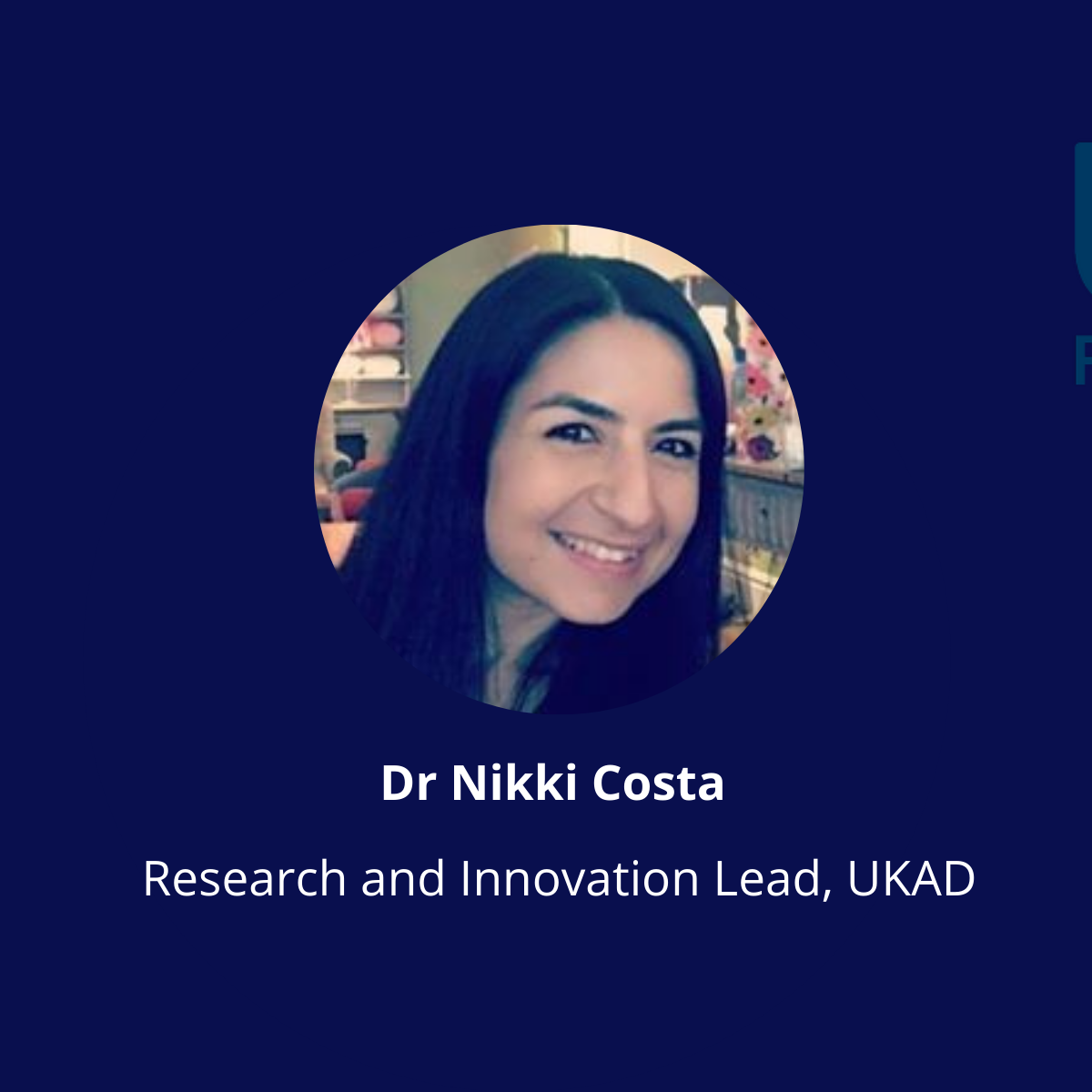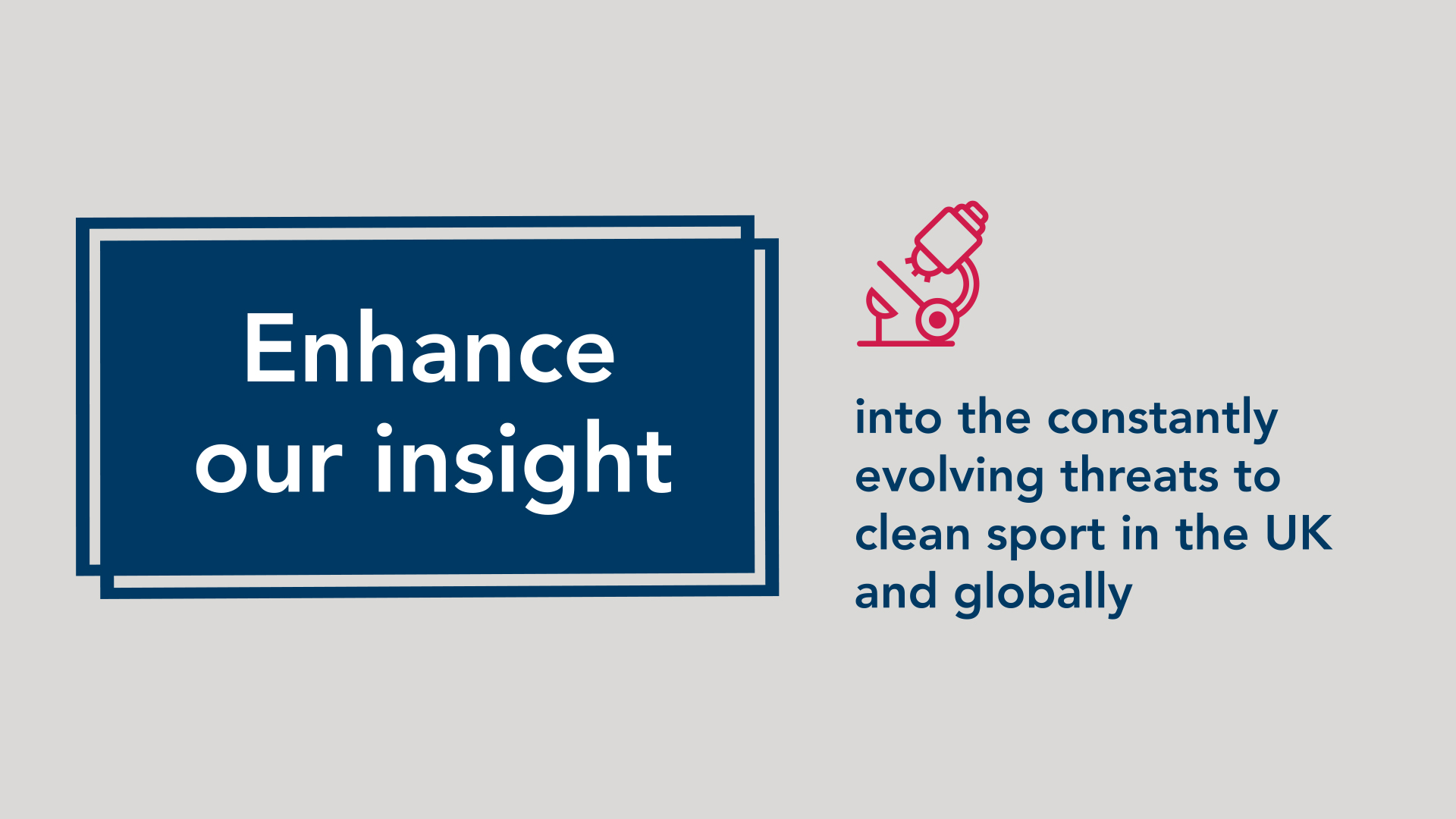Q&A: International Women and Girls in Science Day 2022
On International Women and Girls in Science Day 2022 we spoke to UKAD’s Research and Innovation Lead, Dr Nikki Costa to find out more about her career and work in anti-doping…

- What interested you in a career in science?
Ever since I was a young girl, I was always interested in natural sciences and the human body. I was fascinated by how complex and sophisticated the human body is, how our organs and biological systems work and what happens when they don’t. So, a career in biological science or medicine was envisaged very early on in my education.
- What is your career route to date?
I chose to study biochemistry and immunology, and university developed my interest in laboratory research. I then commenced a PhD in biochemistry before then turning my hand to applied clinical biochemistry in the NHS. I have over 15 years of experience working in the clinical laboratories of NHS hospitals, providing laboratory investigations for the diagnosis and management of patients, with my specialism in paediatric biochemistry and the diagnosis of rare inherited metabolic disorders. This was extremely rewarding work, knowing that I played a crucial role in the diagnosis of diseases and the lives of babies.
- What interested you in working for UKAD?
As a keen marathon runner and cyclist, I often applied my scientific knowledge of metabolism, physiology, and nutrition to my training efforts and at the time in my career when I had applied for the role at UKAD, I was keen to take a step into the sports science world, where I could combine my love of science, health, and fitness. The role excited me as it would entail delving into the anti-doping and sports science research field, provide me with new and interesting learning prospects and the opportunity to make a difference to the developments of the field of anti-doping science.
- What’s your average working day/week like?
Typically, my time is split managing the multitude of research projects that UKAD is involved in, that is, meeting with the research teams to discuss progress, actions and planning next steps. I also spend a significant amount of time planning new projects, engaging with many different internal and external partners in the development of innovative ways to improve UKAD’s operations.
- What’s been the most challenging thing you’ve faced at UKAD/elsewhere in your career?
Probably my decision to leave the NHS after 15 years of service and taking the leap into the unknown (professionally) with a career move into sports science research. It was an emotional decision that I debated internally for some time, but I feel it was absolutely the right decision and has given me a new lease of life! I feel I have grown both professionally and intellectually and I would encourage others to follow their heart in their career paths and not be scared of making difficult decisions.
- What’s the best thing that’s happened in your career to date?
I’m fortunate to say that I have impacted many lives through my career in the NHS as a clinical scientist, so it’s hard to pinpoint a single ‘best thing’. Job satisfaction doesn’t get much better than saving a baby’s life, and I’m proud to have been part of incredible clinical teams delivering the best medical care to patients and their families.
- Why does UKAD’s work matter?
Sport has the power to unify the world through its promotion of tolerance and respect of others, as well as health, education, social inclusion and empowerment of minorities. It’s therefore imperative that sport is clean and free from doping, so that everyone can enjoy sport in confidence knowing that athletes participate in fair competition. UKAD’s work is part of that global fight against doping in sport and I’m proud to be part of this worthy cause.
- Women in science - Have you ever experienced prejudice – why and how?
I’m pleased to say that I have not experienced prejudice in my career to date. I’ve noticed that the workforce in the clinical sciences is actually dominated by women, including at senior and executive levels, so I’m very confident that women will continue to be as valued and represented in scientific careers in the future.
- Have you been supported in your career choices – from childhood on? Have you always wanted to work in science?
Yes, I would say I have always had the support of my family, teachers and peers to pursue a career in science and was fortunate to have been able to go to university to study and on to further post-graduate studies through the supportive environment of academia.
- What advice would you have to girls now thinking about building their careers in science and tech?
I would say do your research into the types of careers you might be interested in, learn about the academic qualifications that you would need to get you there and go for it! Hard work pays off, so keep your mind focussed on your ambitions and don’t let self-doubt or other’s negativity stand in your way. Be confident that you can achieve what you set your heart on.
- What science and tech advances can you envisage – of relevance to your work - in the next 5/10/20 years?
I envisage a lot more emphasis on data analytics and artificial intelligence being used in anti-doping in the future, to increase the effectiveness of our intelligence-gathering activities, athlete testing strategies and risk assessments of sports. With improvements in analytical science, our detection of Anti-Doping Rule Violations (ADRVs) will improve, in particular with the implementation of dried blood spot sampling, an endocrine module of the ABP and the development of methods for detecting novel long-term metabolites.
- Who is your favourite woman in science – role model or mentor or historical figure?
Probably unsurprisingly, Rosalind Franklin, who was instrumental in the discovery of the structure of DNA, the greatest scientific discovery in human medicine. I have followed in her footsteps studying at both Kings College London University and the University of Cambridge, so I feel privileged to have been educated in institutions which reared one of the greatest scientific minds to have ever lived.


